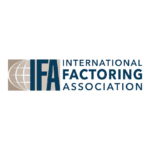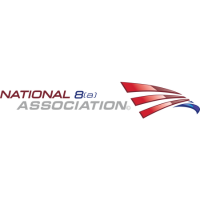
Choosing the Right Path: Types of Business Structure for Staffing Agencies
The type of business structure for your staffing agency isn’t just a legal formality; it’s a decision that shapes the future of your business. It impacts your personal liability, tax obligations, funding potential, and even day-to-day operations. Make this choice carefully to set your agency up for long-term success.
As someone who’s built a career in the staffing industry, I can share the critical considerations as you explore different types of business structures for staffing agencies.
Key Takeaways
- Your business structure affects liability, taxation, paperwork, and access to funding.
- A well-crafted business plan should guide your choice of structure.
- Common options include LLCs and corporations, each with unique pros and cons.
- Consider taxes, your industry’s demands, and your personal risk tolerance.
- Use trusted resources like the SBA and SCORE for guidance.
Why Your Staffing Agency’s Business Structure Matters
Before you dive into hiring recruiters or negotiating client contracts, it’s crucial to step back and choose the right business structure. The types of business structure for staffing agencies you consider will directly influence:
- Your personal legal exposure if the agency faces lawsuits or bankruptcy.
- The tax rates and deductions available to you and your agency.
- How easily you can raise capital to fuel growth.
- The amount and complexity of paperwork you’ll need to handle every year.
In my experience, owners and founders who take time to understand these implications are better positioned to grow sustainably and withstand inevitable market challenges.
Establishing your business plan is a good place to start.
Start with a Solid Business Plan
Think of a business plan as your agency’s roadmap: it keeps you focused on long-term goals and clarifies how each part of your business connects, from recruiting strategy to operational costs.
A comprehensive plan should cover:
- Your service offerings (temporary staffing, direct hire, contract-to-hire, etc.)
- Revenue projections and pricing models
- Marketing strategies
- Operational requirements and funding needs
Dig into the key components of a staffing agency business plan. This clarity makes it easier to evaluate which type of business structure for staffing agencies aligns best with your goals.
Exploring Common Types of Business Structure for Staffing Agencies
Staffing entrepreneurs often favor two common structures: LLCs and corporations. Let’s weigh the pros and cons.
Limited Liability Company (LLC)
An LLC is popular among new staffing agency owners for good reason:
- It protects your personal assets like your house, car, and savings if your agency is sued or faces debts.
- Business profits and losses “pass through” to your personal income, avoiding corporate taxation.
However, keep in mind:
- As an LLC owner, you’re typically considered self-employed, which means paying self-employment taxes.
- While paperwork requirements are lighter than corporations, you should still expect to handle annual reports, registered agent requirements, etc.
Corporation (C Corp or S Corp)
Forming a corporation creates a distinct legal entity, separate from its founders.
- This separation shields your personal assets from business liabilities.
- Corporations can raise funds more easily through investors or by issuing shares.
But there are trade-offs:
- Corporations must file articles of incorporation and adhere to stricter reporting and governance standards.
- C corporations face double taxation (corporate level and shareholder level), while S corporations may avoid this but come with ownership restrictions.
What to Consider When Deciding
Marco Carbajo, author of the SBA’s Choosing the Right Business Structure, points to three major factors:
- Business taxes: Consider whether pass-through taxation or corporate taxation is better for your growth plans.
- Industry: The staffing industry has unique cash flow challenges; your structure can help or hinder your ability to manage them.
- Personal liability: Think about your comfort level with risk and how much protection you need.
Trusted Resources to Guide You
Choosing among the types of business structure for staffing agencies can feel overwhelming, but you’re not alone. Check out these resources:
- The U.S. Small Business Administration (SBA) offers in-depth comparisons of each structure.
- SCORE, a nonprofit with experienced mentors, can walk you through pros and cons specific to the staffing industry.
In my work with new agency owners, I’ve seen how combining professional advice with these trusted resources leads to smarter, more confident decisions.
Build the Foundation First
There’s no one-size-fits-all answer to choosing the right business structure. The best choice depends on your growth goals, risk tolerance, tax preferences, and operational needs.
Start with a business plan, do your research, and consult experienced professionals. This investment will pay off as your staffing agency scales.
From funding to your business’s foundation, our experts are in your corner. Let’s set your agency on the strongest possible foundation! Contact the Encore Funding team today.
Frequently Asked Questions
- What is the best business structure for a staffing agency just starting out?
An LLC is often preferred by new owners due to its flexibility and liability protection, but the best choice depends on your specific goals.
- Can a staffing agency switch business structures later?
Yes, but it can involve administrative costs, potential tax consequences, and new legal filings.
- Do all staffing agencies need to incorporate?
No. Some operate as sole proprietorships or partnerships, but these leave owners personally liable for business debts.
- How does business structure affect taxes for staffing agencies?
LLCs typically allow pass-through taxation, while corporations may face double taxation unless structured as S Corps.
 info@encore-funding.com
info@encore-funding.com 216-998-9900
216-998-9900








